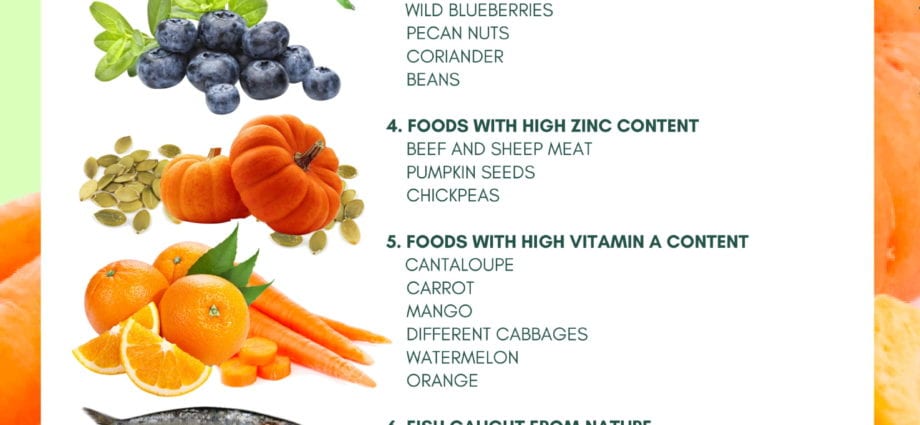Contents
General description of the disease
Psoriasis is a chronic dermatosis characterized by papular, scaly rashes on the skin, in some cases it can affect the joints.
Types of psoriasis and their symptoms:
- 1 Spotted psoriasis – with this type of psoriasis on the elbows, knees, scalp, lower back, genitals, oral cavity, red formations appear, covered with flaky silvery-white scales.
- 2 Guttate psoriasis – may occur after suffering from acute respiratory viral infections and tonsillitis, characterized by teardrop-shaped spots with very thin scales. People who have reached the age of 30 are most affected.
- 3 Pustular (pustular) psoriasis – characterized by the appearance of white blisters surrounded by red skin that cover large areas of the skin. The disease is accompanied by severe itching, chills and flu, the spots periodically disappear and reappear. The risk group includes pregnant women and people who abuse steroid creams and steroids.
- 4 Seborrheic psoriasis – characterized by the appearance of glossy bright red spots (practically without scales) in the armpits, under the breast, in the groin and genital area, behind the ears, on the buttocks. Fat people are most affected.
- 5 Erythrodermic psoriasis – A rare type of disease characterized by itching, skin inflammation and a rash that covers the entire body and flakes. In this case, there is an increase in temperature, chills. It is provoked by sunburns, not cured varieties of psoriasis, refusal to systematically take the necessary medications. Erythrodermic psoriasis causes fluid and protein loss, infection, pneumonia, or edema.
Useful foods for psoriasis
A therapeutic diet for psoriasis is very important, since it should maintain the alkaline level of the body at around 70-80%, and its acidity by 30-20%:
1. A group of products that must be consumed in the diet in a ratio of at least 70-80% and which are alkaline:
- fresh, steamed or frozen fruits (apricots, dates, cherries, grapes, figs, lemon, grapefruit, mango, lime, nectarine, papaya, orange, peaches, small prunes, pineapples, raisins, kiwi).
- certain types of fresh vegetables and vegetable juices (carrots, beets, celery, parsley, lettuce, onions, watercress, garlic, cabbage, broccoli, asparagus, spinach, yams, sprouts, zucchini, pumpkin);
- lecithin (added to drinks and food);
- freshly squeezed juice from berries and fruits (pears, grapes, apricots, mangoes, papaya, grapefruit, pineapple), as well as citrus juices (used separately from dairy and grain products);
- alkaline mineral water (Borzhomi, Smirnovskaya, Essentuki-4);
- clean water (at the rate of 30 ml per kg of weight).
2. A group of products that must be consumed in the diet in a ratio of no more than 30-20%:
- cereals and dishes made from them (oats, millet, barley, rye, buckwheat, bran, whole or crushed wheat, flakes, sprouts and bread made from it);
- wild and brown rice;
- whole seeds (sesame, pumpkin, flax, sunflower);
- pasta (not made from white flour);
- steamed or boiled fish (blue fish, tuna, mackerel, cod, coryphene, haddock, flounder, halibut, salmon, perch, sardines, sturgeon, sole, swordfish, whitefish, trout, sushi);
- poultry meat (turkey, chicken, partridge);
- low-fat lamb (no more than 101 grams per app and without combined use with starch products);
- low-fat dairy products (milk, buttermilk, soy, almond, goat milk, powdered milk powder, unsalted and low-fat cheese, cottage cheese, yogurt, kefir);
- soft-boiled or hard-boiled eggs (up to 4 pcs. per week);
- vegetable oil (rapeseed, olive, sunflower, corn, soybean, cottonseed, almond) no more than one teaspoon three times a day;
- herbal tea (chamomile, watermelon seeds, mullein).
Folk remedies for psoriasis:
- dilute freshly squeezed lemon juice in a glass of cold or hot water;
- glycotimoline (up to five drops in a glass of clean water at night for five days a week);
- decoction of bay leaves (two tablespoons of bay leaves in two glasses of water, boil for ten minutes) use during the day, in three doses, the course is a week;
- infusion of malted barley flour (two tablespoons per liter of boiling water, leave for four hours), take half a glass with honey up to six times a day.
Dangerous and harmful foods for psoriasis
It is very important to exclude from the diet or limit the amount of consumed foods that “acidify” the body.
Reduce the number of such products:
- some types of vegetables (rhubarb, legumes, large pumpkin, Brussels sprouts, peas, lentils, mushrooms, corn);
- some types of fruits (avocado, cranberries, currants, plums, large prunes);
- almonds, hazelnuts;
- coffee (no more than 3 cups a day);
- dry red or semi-dry wine (up to 110 grams at a time).
In psoriasis, the following foods should be excluded: nightshade vegetables (tomatoes, peppers, tobacco, potatoes, eggplants); foods with a high level of proteins, starches, sugar, fats and oils (cereals, sugar, butter, cream); vinegar; products with artificial additives, preservatives, dyes; alcohol; berries (strawberries, strawberries); certain types of fish (herring, anchovies, caviar, salmon); crustaceans (lobsters, crabs, shrimps); shellfish (oysters, mussels, squid, scallops); poultry (goose, duck, poultry skin, smoked, fried or baked in batter or breadcrumbs); meat (pork, beef, veal) and meat products (sausages, hamburgers, sausages, sausages, ham, offal); fatty dairy products; yeast-based products; Palm oil; coconut; hot spices; sweet cereals; smoked meats.
Attention!
The administration is not responsible for any attempt to use the information provided, and does not guarantee that it will not harm you personally. The materials cannot be used to prescribe treatment and make a diagnosis. Always consult your specialist doctor!










